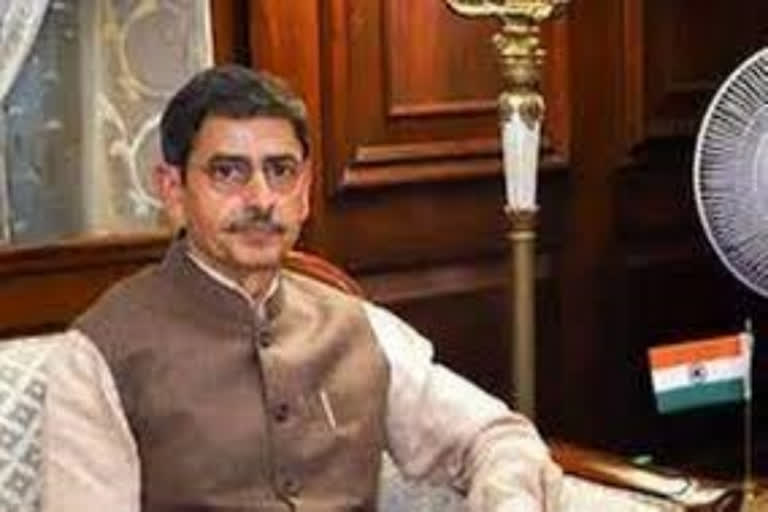New Delhi: The shifting of Nagaland Governor RN Ravi from Kohima’s Raj Bhavan to the one in Chennai that was announced on Thursday night is one that is fraught with implications for both Nagaland and Manipur.
With the move, the government is signaling its intent to salvage the Naga peace talks process from the situation of stalemate it is in right now. The Naga insurgency leadership, chiefly the Thuingaleng Muivah-led NSCN (IM), has been blaming Governor Ravi for the present impasse and therefore had been demanding his removal from the post of Nagaland Governor.
Ravi’s easing out may be an outcome of the government’s keenness to kick-start the process.
The move may also be seen as a move to placate the Tanghkul Nagas who dominate the rank and file of the NSCN (IM) and hail from the hill districts of Manipur.
Besides paving the way for a resolution of the Naga issue, the government may also be eyeing the Manipur state assembly elections which will be held in March 2022—just seven months away.
Manipur has five hill districts—Senapati, Tamenglong, Ukhrul, Chandel and Churachandpur—of which Nagas are demographically significant in the first three.
Nagas in Manipur have the ability to decide the outcome in at least 11 assembly constituencies out of Manipur’s 60 seats. In the 2017 state polls, the ruling BJP had bagged 21 seats while the Congress had won in 28 ending up as the largest single party in the state.
Read: Nagaland to have opposition-less Legislative Assembly
Understandably, discontentment of Nagas with the ruling BJP-led dispensation at the Centre in New Delhi could spill over to unhappiness with the ruling BJP government in Manipur that is delicately balanced against the Congress as of now.
Says Prof Kumar Sanjay Singh, an analyst of developments and insurgency in NE India who teaches history at Delhi University: “Governor Ravi failed in his policy of brinkmanship where he attempted to force the hand of NSCN (IM) to sign on the dotted line by declaring ultimatums. And by patronizing individuals and organisations who were projected as alternatives with whom the accord can be signed if NSCN (IM) created any more delays.”
“But by no means does it amount to a demotion of Ravi. His tactical line of approach is still being pursued as very recently the government has started parallel negotiations with the Nikki Sumi faction of the NSCN. Moreover, Ravi has been appointed Governor of a very important state where the BJP wants to sink roots in.”
While the Naga insurgents’ demand for a separate independent and sovereign homeland for the Nagas had watered down quite substantially over the years, they had remained unmoving on the demands for a separate constitution and a Naga flag with the central government remaining steadfast in its aversion to concede.
With Ravi already being the government’s interlocutor for the talks before being appointed as the Nagaland Governor in August 2019, his mandate as Governor seemed clear—to pursue a policy of brinkmanship with the NSCN (IM) and be inclusive in his approach by trying to include interests competing with the NSCN (IM).
On June 6, 2020, Governor Ravi in a letter to Nagaland Chief Minister Neiphiu Rio termed the insurgent groups as ‘armed gangs’ running large-scale extortion and illegal activity. He had written: “The scenario in the state is grim. The law and order has collapsed, the constitutionally established state government is being challenged on day-to-day basis by armed gangs who question the sovereignty and integrity of the nation while the instruments of law and order remain totally unresponsive.”
Read: Nagaland MLAs flock to Delhi in bid to resolve 'issues'Centre declares Nagaland as 'disturbed area' for another 6 months
This irked the insurgent groups, chiefly the NSCN (IM) to no end.
On July 7, 2020, the state government ordered all its employees to furnish a declaration within a month, providing information and details of any family member or relatives who are involved with ‘underground’ organisations.
The order sought information including naming of the individual, the ‘underground’ organization, nature of relationship that the employee has with the individual as also the position or rank held by that individual within the ‘underground’ hierarchy.”
These orders were followed by an armed encounter on July 11, 2020, when six NSCN (IM) cadres were shot dead in an encounter by a combined team of Indian Army, Assam Rifles and Arunachal Pradesh police personnel near Nyinu village in Longding district of Arunachal Pradesh. It was the outfit’s biggest military loss in recent years.
The next day, the NSCN-IM breathed fire in its July 12 statement: “NSCN-IM is being driven to the wall after repeated provocation and aggression. The goodwill spirit of ceasefire has been stamped to the ground. Ceasefire has lost its meaning because ceasefire can only make sense where there is mutual respect.”
With Ravi’s exit, the NSCN-IM can look forward to resumption of the process of talks.



